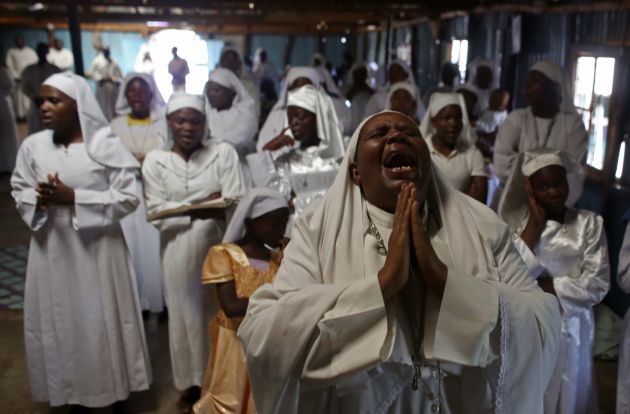Kenyans mourn after Somali terror group singles out Christian students in slaying

Kenyans were in mourning on Good Friday following the 16-hour siege at Garissa University College near Somalia involving terrorists from al-Shabaab that claimed nearly 150 lives in an attack that singled out Christian students.
At least 147 students were butchered April 2 when the Somalia Islamist group, linked to al-Qaeda, attacked the Kenyan university, the deadliest attack in the East African country since bombings on the U.S. embassy in 1998.
"With grim predictability, the Easter weekend brings annual Islamic attacks against Christians in the Middle East and Africa. This year it started in Kenya," The Wall Street Journal editorialized.
In an editorial headlined, "The reality of religiously motivated violence in the Middle East," the Journal said, "The killings of these Christian students reveals, once again, the harshest reality of the chaos spreading throughout these regions."
The World Council of Churches strongly condemned the attack on April 4.
"The World Council of Churches calls for the Kenyan authorities and the international community to ensure criminal accountability for those who conceived this unconscionable act, and to prevent future attacks, especially those intended to provoke inter-religious confrontation and conflict," said Rev. Olav Fykse Tveit, general secretary of the WCC.
The attack in Kenya took place the day before Christians commemorate the day Jesus was crucified, three days before they celebrate his resurrection from the dead in one of Christianity's most important feasts.
"The reality is that multiple jihadist armies, invoking Islam, are engaged in a planned strategy, not merely of territorial aggrandizement, but of extermination," editorialized The Wall Street Journal.
The editorial noted that in 2014 Islamic State also sought to slay or starve the Yazidis in northern Iraq.
"But the Christians represent a minority that has co-existed for centuries in many countries with Muslims and other believers. Some Christians in Iraq and Syria still speak Aramaic, the language of Jesus.
"It is a hard lesson to accept in the Easter season. But the reality is that only coalitions of the willing, from within and beyond this troubled region, will stop the elimination of Christians and other minorities like those who died in Kenya this Holy Week merely for what they believed."
The Wall Street Journal noted that more than a hundred years ago, Christians made up about 20 per cent of the Middle East's population. Today it's about 5 per cent.
The day of the massacre on April 2, the U.S. Whitehouse said, "We extend our deep condolences to the families and loved ones of all those killed in this heinous attack, which reportedly included the targeting of Christian students."
The masked gunmen stormed the Garissa campus in northeast Kenya on which most of the students are Christians.
They hurled grenades and fired automatic rifles while students were asleep. Bystanders said they shot dead many students and then set Muslims free, holding Christians and non-Muslims.
Kenya's national disaster center said there were "147 fatalities confirmed in the Garissa attack," in which it said all the attackers were dead after the siege.
Abdullahi Boru, Nairobi-based East Africa researcher with Amnesty International told the Christian Science Monitor, "The overall goal here is not only to make the government look bad, but ultimately to drive a wedge between the Christian and Muslim communities in Kenya."